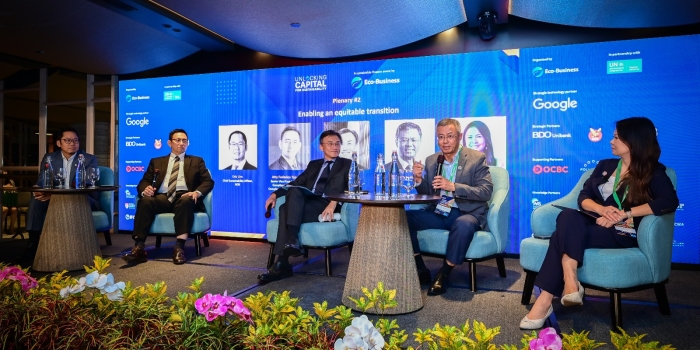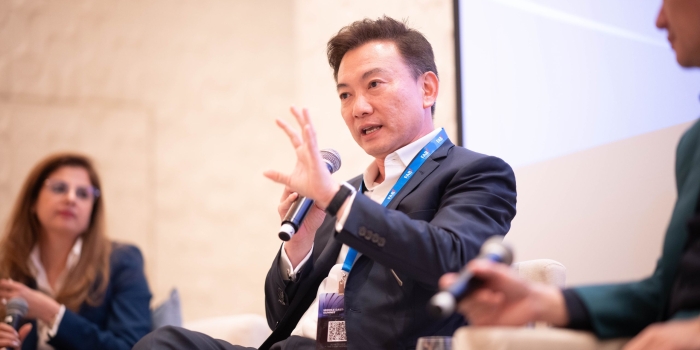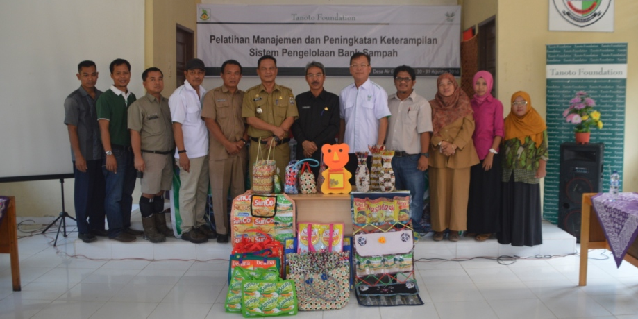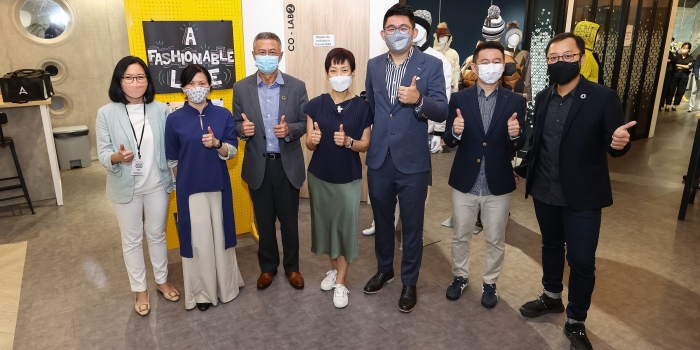Eco-Business’ series of “Unlocking Capital for Sustainability” events across Southeast Asia culminated in a finale event on the 28th of September in Singapore. Since its inception in 2018, “Unlocking Capital for Sustainability” has become an annual flagship event, jointly orchestrated by Eco-Business and the United Nations Environment Programme (UNEP). This prestigious gathering brings together influential figures from across finance, business, government, and civil society to engage in meaningful discussions and support practical endeavours aimed at harnessing capital markets for the advancement of sustainability.
Vice Chairman of RGE, Mr Bey Soo Khiang, participated in a panel discussion titled ‘Enabling an equitable transition’, alongside Eric Lim, Chief Sustainability Officer, UOB, Atty Federico Tancongco, Senior Vice President and Chief Compliance Officer, Head of Compliance and Legal Department, BDO Unibank, and Mike Ng, Chief Sustainability Officer, OCBC Bank. The panel was moderated by Jessica Cheam, Founder and Managing Director of Eco-Business. The panel discussion centred on achieving an equitable transition to a net-zero economy in developing Asia, and also explored how the private sector is collaborating with the public sector to develop economic strategies that promote equity and justice in policymaking and corporate actions, with a particular emphasis on developing markets.
Taking concrete action on the ground
In the quest to achieve a fair transition to a net-zero future, Mr. Bey Soo Khiang acknowledged the vital importance of establishing a comprehensive plan as the foundation for actionable steps. “Fundamentally, having a plan is a prerequisite for taking action,” he said. To illustrate, he pointed out RGE’s 2030 sustainability agenda, emphasising a holistic approach encompassing climate, nature, people, and sustainable growth. Sustainability is at the core of RGE’s business strategy as a strategic driver of growth, with one major objective being to attain true net-zero operations by 2050.
Consequently, RGE firmly believes that sustainability aligns with sound business principles and therefore maintains a strict stance against deforestation. Mr. Bey shared APRIL Group’s implementation of a sustainable forest management policy, formalising its commitment to zero deforestation while preserving natural forests on a one-to-one ratio for each hectare of planted forest. He also highlighted APRIL’s dedication to adopting renewable energy sources, noting, “80% of our energy consumption is now renewable, and APRIL aims to achieve 50MW of solar panel output by 2030.”
Collaborating to combat climate change
Looking at the bigger picture, Mr. Bey emphasised the pivotal role that corporations play in the communities in which they operate. “We refer to it as inclusive progress,” he said. “Understanding the needs of the community is paramount.” He cited RGE’s community development programmes in Indonesia, with a strong focus on alleviating poverty, promoting gender equality, enhancing educational access, and improving the quality of education in rural areas. Mr. Bey underscored the challenge of delivering quality education in Indonesian villages and detailed a wide range of initiatives aimed at addressing this issue. Since 2013, approximately 3% of the total expenditure on the Restorasi Ekosistem Riau (RER) project has been allocated to community spending. This encompasses partnerships with BIDARA and Laskar Alam and the implementation of 15 distinct community relations activities across 21 communities surrounding the RER.
Additionally, RGE collaborates with local government entities and communities through its Fire Free Village Programme (FFVP), designed to eliminate fire as a land-clearing method, thus mitigating the risk of wildfires spreading to adjacent areas. To date, the FFVP has engaged with 150 communities and partnered with 343 schools to raise awareness about the perils of fires and the viability of alternative agricultural practices.
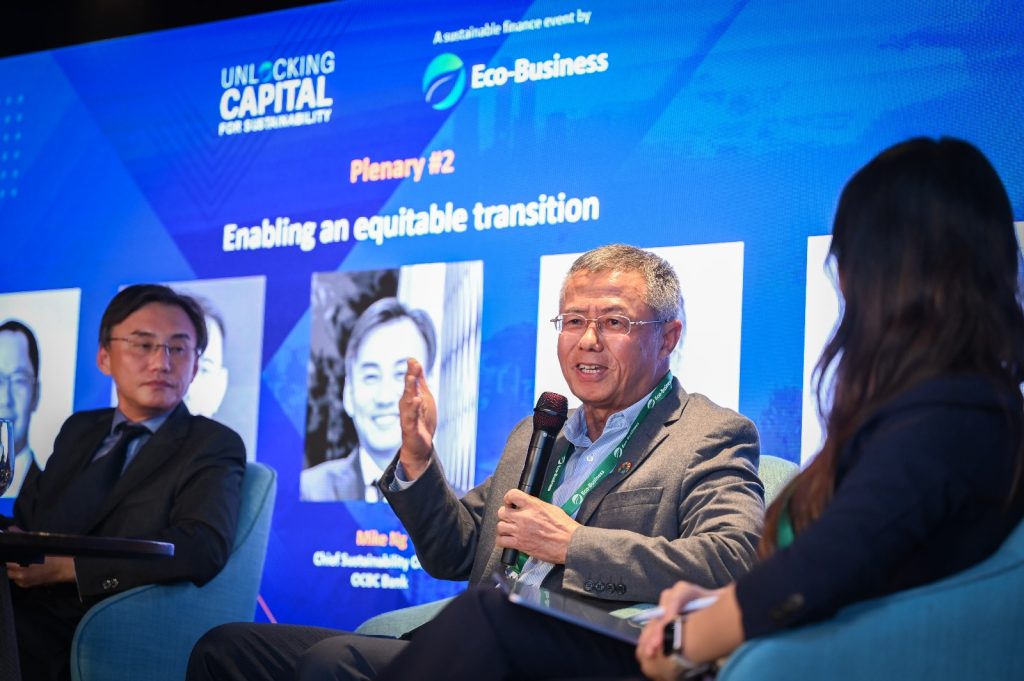
Measurable steps towards a greener future
As the world’s largest viscose producer, RGE is fully committed to taking tangible steps toward creating an equitable net-zero world. Mr. Bey shared details of RGE’s $6 million partnership with Nanyang Technological University Singapore to establish the RGE-NTU Sustainable Textile Research Centre (RGE-NTU Sustex), aimed at accelerating innovation in textile recycling in Singapore. “Textiles contribute to approximately 6% to 10% of global emissions, and a staggering 40% of textiles produced go unused. The industry’s carbon emissions footprint is quite substantial,” Mr. Bey said. He envisioned an urban-friendly textile recycling system in Singapore serving as a powerful proof-of-concept for other cities worldwide seeking to reduce their textile carbon footprint.
In conclusion, Mr. Bey grounded his perspectives in a highly practical approach to the issue at hand. He emphasised what he deemed essential for corporations to effectively achieve an equitable transition. “These are all targets, and they shouldn’t just be set at the top of a company,” he said. He stressed that to succeed in this endeavour, companies must set ambitious yet realistic goals. “It’s a balance between ambition and reality,” he said. And he elaborated on the importance of fostering a deep-seated commitment to community goals and needs within a company. “How can we enable this? We want executives to take responsibility and carry out the necessary actions to meet these objectives,” he concluded.



